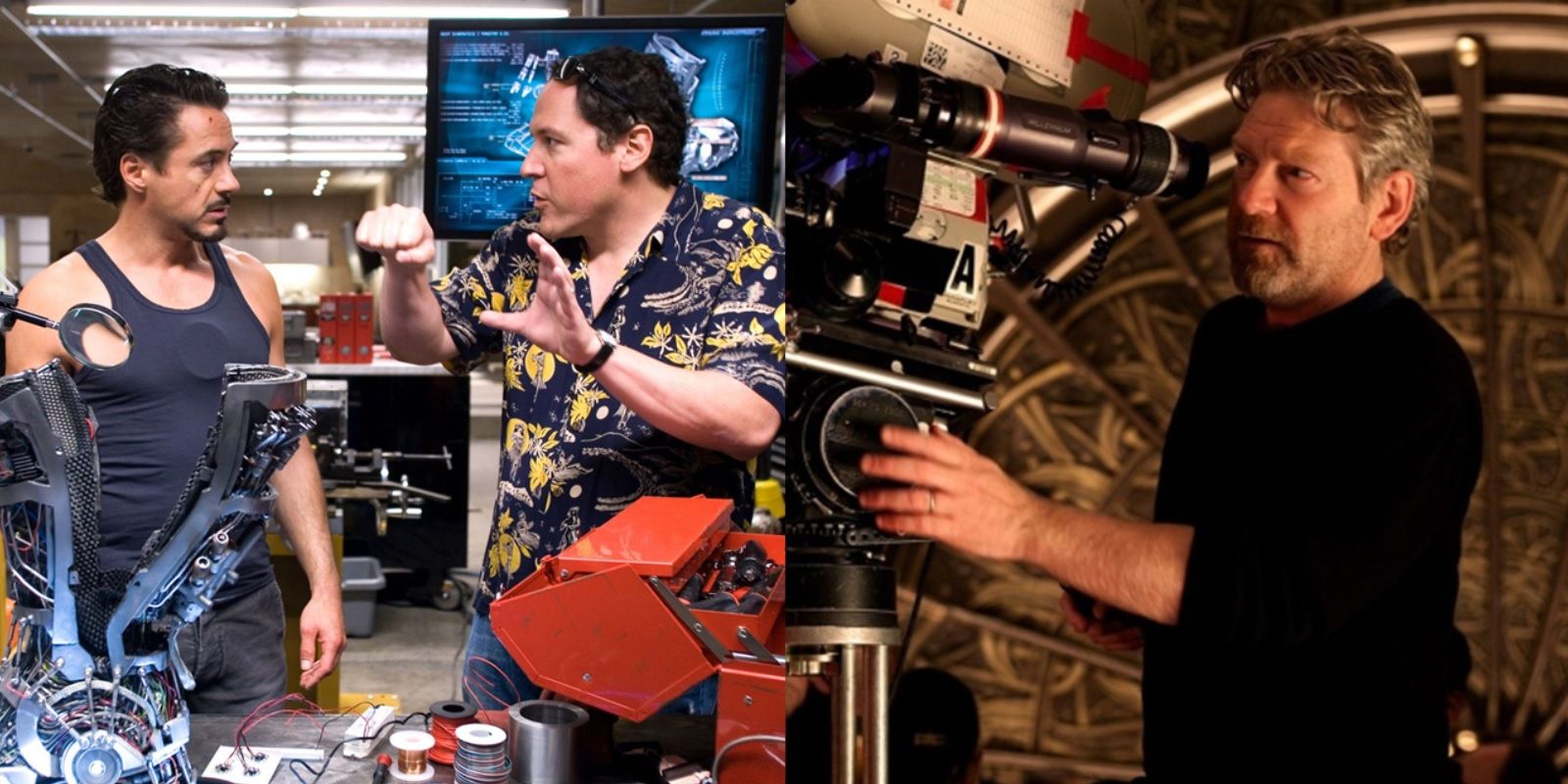Now that the Marvel Cinematic Universe is well into Phase Four, Phase One feels like a distant memory. Phase One consisted of five solo adventures – Iron Man, The Incredible Hulk, Iron Man 2, Thor, and Captain America: The First Avenger – building up to the first Avengers movie. The directors of these movies laid the groundwork for the MCU in terms of tone, style, and characterization.
In the literal sense, these filmmakers built the world and established the visuals, but they also defined the familiar story formula and all the archetypes that Marvel Studios is now famous for. From Jon Favreau to Kenneth Branagh, some incredibly talented filmmakers contributed to the MCU’s first round of superhero blockbusters.
5 Louis Leterrier
Best known for directing Transporter 2, Now You See Me, and the Clash of the Titans remake, Louis Leterrier put his stamp on the MCU with The Incredible Hulk. Despite starring Edward Norton as a complex, nuanced take on Bruce Banner, The Incredible Hulk is one of the most forgettable entries in the franchise. Along with Thor: The Dark World and Iron Man 2, it usually places low on rankings of the MCU’s movies.
Skipping the Hulk’s familiar origin story – a move later replicated by Spider-Man: Homecoming – was a wise decision, but the plot that takes the origin story’s place is plodding and aimless. The Incredible Hulk has some memorable action scenes in its middle act, but the big finale is a straightforward smash-‘em-up.
4 Joe Johnston
Joe Johnston started out doing visual effects for the Star Wars and Indiana Jones movies before becoming a director with hit movies like Jumanji and Honey, I Shrunk the Kids. In the MCU’s Phase One, Johnston helmed Captain America: The First Avenger as a more or less conventional superhero blockbuster. There are a couple of subversive twists, like the government’s use of Steve as a propaganda tool, but The First Avenger largely follows Marvel’s rigid origin story beats.
Johnston and his spot-on casting choice Chris Evans perfected Cap’s characterization from the get-go, but struggled to figure out how to make a classic goody-two-shoes compelling. The story builds to a heartbreaking conclusion in which Steve makes the ultimate sacrifice, reawakens in the modern day, and all he can focus on is the date he missed with Peggy. This was a great springboard for Cap’s MCU arc, but it wouldn’t really take off until the Russo brothers sunk their hooks into the character.
3 Kenneth Branagh
A decade after helming the first Thor movie for the MCU’s Phase One, Kenneth Branagh released his most personal film to date, Belfast, based on his own childhood in the titular city. In one scene, the young protagonist (a stand-in for Branagh) can be seen reading a Mighty Thor comic. The director is clearly passionate about the character. The God of Thunder’s solo movies wouldn’t be perfected until Taika Waititi brought in influences from Flash Gordon and Big Trouble in Little China in Ragnarok, but Branagh’s original Thor movie got Chris Hemsworth’s MCU arc off to a great start.
Before the Thor movies were defined as cosmic Viking adventures, Branagh set the tone as pseudo-Shakespearean medieval fantasy. It made sense for Branagh to go in this direction, since his series of movies based on Shakespeare’s classics made him Hollywood’s go-to guy for Shakespeare. The Shakespearean superhero aspects don’t quite land in Thor, but Branagh nails the humor of the fish-out-of-water scenes on Earth.
2 Joss Whedon
In theory, The Avengers shouldn’t have worked. It’s a movie about a billionaire in a metal suit, a Norse god, a big green monster, and a cryogenically frozen World War II-era super-soldier all coming together to fight the minions of an evil alien overlord who wants to collect some magical stones. If Joss Whedon didn’t stick the landing with The Avengers, then the Infinity Saga might not have panned out. Iron Man laid the groundwork, but The Avengers solidified the MCU’s success.
Whedon’s razor-sharp script effortlessly mixed the characters’ disparate worlds with a single unifying creative tone. His direction balanced the ensemble nicely and laid the groundwork for every subsequent ambitious Marvel team-up. Whedon returned in Phase Two for the first Avengers sequel, Age of Ultron, but the plotting wasn’t as tight and the payoffs weren’t as earned the second time around.
1 Jon Favreau
Jon Favreau set the tone for the entire MCU with 2008’s Iron Man, the groundbreaking blockbuster that started it all. Unlike many of its less successful imitators, Iron Man doesn’t focus on building a universe; it focuses on telling its own story and introducing a flawed but noble hero worth rooting for. Favreau’s original Iron Man film would still hold up as a strong standalone superhero adventure if Marvel Studios never made another movie.
While Iron Man still stands as one of the MCU’s greatest movies (and always will), Favreau’s reputation as a Marvel director is let down by Iron Man 2. That one is focused on universe-building and puts its own plot and characters in the backseat. But, Iron Man 2 notwithstanding, The Mandalorian has shown that Favreau is clearly a master storyteller.
About The Author

